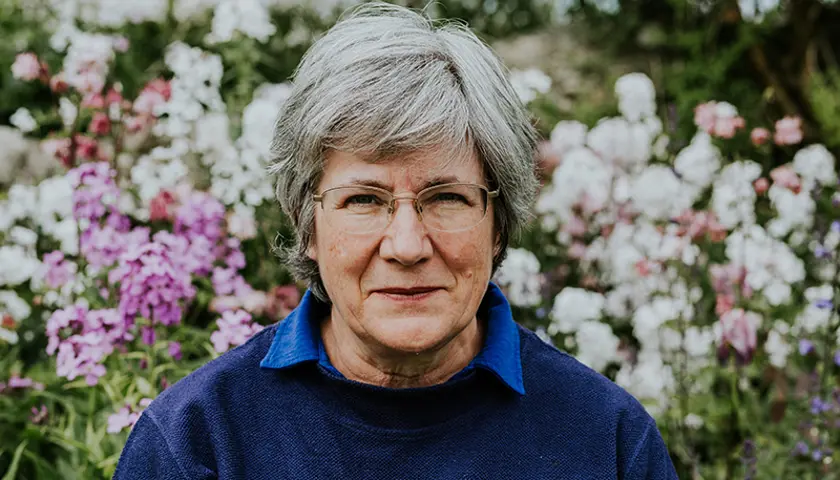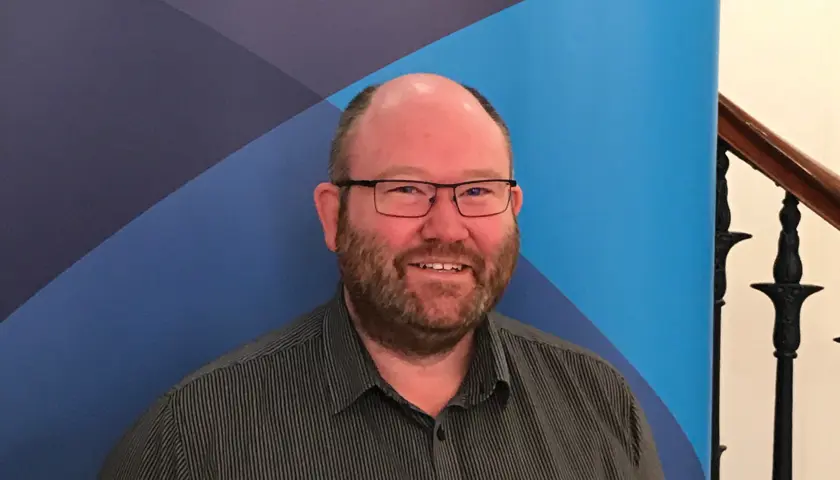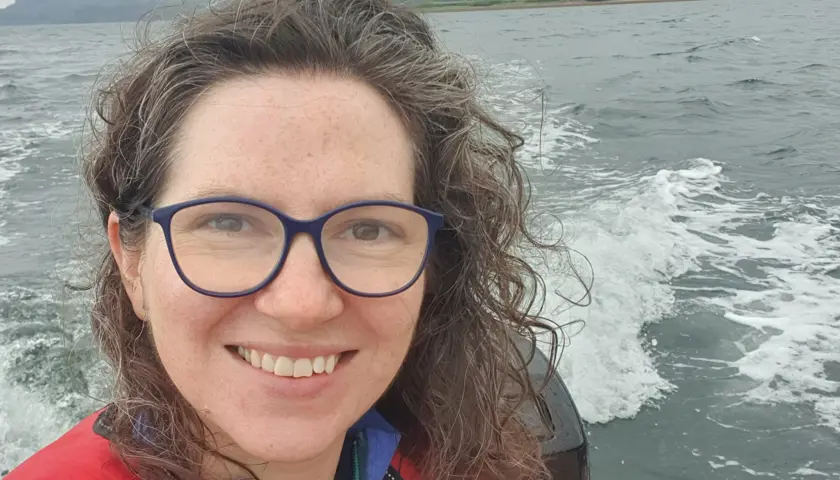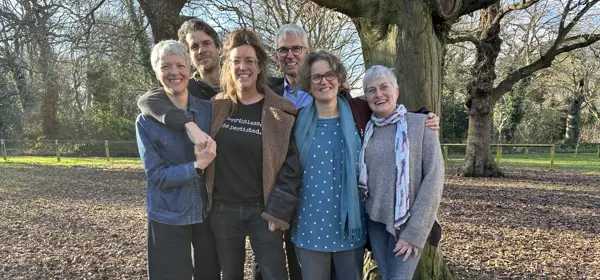Not so idyllic
Not so idyllic
Stunning scenery, an apparently generous salary ... but the well-publicised vacancies on remote Scottish islands actually say much about the parlous state of rural general practice
It sounds amazing: GPs with a ‘sense of adventure and passion for remote and rural medicine’ are being asked to ‘ditch the rat race and embrace a more healthy work-life balance’ in Scotland’s Western Isles. What’s more, the jobs carry an impressive £150,000 salary (including various enhancements and allowances).
This stupendous sounding package was even reported in The Guardian, where it was described as a ‘record’ GP salary for a 40-hour week.
But while the advert extols the beauty, ‘shimmering beaches’ and culture of the Isles of Uist and Benbecula, the story behind the vacancies is a little less idyllic.
The vacancies – five of them – came about because the last two GP partners in the general medical services practice on the small island of Benbecula have handed back the contract, meaning that delivering GP services is now the responsibility of the health board, NHS Western Isles.
‘There are two partners in the practice and we’re both handing the contract back,’ says Kate Dawson, who has worked and lived in the Western Isles since 1990, working in Benbecula since 1992. ‘But what I absolutely want to make clear is that we’re not handing back the contract because of any failure within the practice. It’s because becoming a GP partner has become unattractive and financially risky.’
There are two partners in the practice and we’re both handing the contract back
As recently as 10 years ago, the practice was high earning, she says, with four GP partners taking on additional work, including providing medical cover for the community hospital, and running specialist clinics. It also held a contract to provide medical support to Highlands and Islands Airports, and to the local military, which has since downsized in the area.
‘There was a lot going on, but we were a thriving practice,’ says Dr Dawson. ‘But two partners retired, and we couldn’t recruit to replace them. We’ve dropped a lot of the extra work, we lost the contract with Highlands and Islands Airports, and we dropped the contract we had with the military, and the dermatology and surgical clinics. Basically, we’ve contracted to make sure that core business can continue, which is general practice and the community hospital.’
Unsustainable
The remaining two GP partners were each doing 10 sessions per week, as well as one in two on call. ‘It wasn’t sustainable, so we stopped doing out of hours,’ says Dr Dawson. ‘And the health board has made no bones about it that they wanted to take the community hospital contract to safeguard the service in the face of our recruitment difficulties and so that they could redesign the unscheduled care service within the same budget.
‘Taking the contract from the practice completely destabilises it and makes it financially non-viable over a very short period of time.’
When her colleague said he no longer wanted to work full time, the only sustainable option was to hand back the contract, says Dr Dawson. It wouldn’t be fair, she says, to advertise for a new partner (even if they were successful) when it’s likely that they would lose the community hospital contract.
‘We could keep limping on with one partner, make our salaried GPs redundant, lose one of the practice nurses, downsize the admin team, and generally tighten our belts to make ourselves financially viable without the hospital contract – and that’s really unattractive. We’ve got a really good team, we provide excellent care to patients. And I think over the years we’ve proven you can run a successful practice and provide good-quality medical coverage to the community hospital. But I now feel we’ve got a job that we can’t advertise.’
Any incoming partner would have to ‘cough up a considerable sum of money’ to buy into the partnership (partly because it’s a dispensing practice with a lot of necessary stock) then run the risk of being in a practice that was going to lose most of its staffing through redundancy, and lose half its income, she adds.
‘It’s been impossible to recruit new partners. And it came to the point when I was embarrassed to advertise the job. I’d feel I was almost hoodwinking people to come into a financially unstable situation where we might be forced to hand back the contract anyway.’
When Dr Dawson spoke to The Doctor she was in her last week of being a GP partner. She had intended to retire two years ago on her 60th birthday, but instead has applied to take up one of the salaried posts. She wants, she says, to ensure that the transition to becoming a 2c practice (one that’s run by the health board) works well.
‘The reason the practice has been so successful is that we’ve put our heart and soul into it,’ she says. ‘We’ve worked exceptionally hard to make sure all our clinical governance is up to speed and that we’ve got a really good positive culture within the practice. So, my main goal is to make sure I’m there to support the practice into becoming a 2c practice successfully, so that we don’t lose that positive culture.’
She has, she says, a feeling of bitterness that they have been forced into this situation. ‘It’s one of the things I’m really cross about. All across England and Scotland and Wales and Northern Ireland, practices are becoming 2c practices, and it’s not because they are failing. It’s because they’ve been failed.
‘We’re still a very strong practice with high standards. We’re cost-effective and our continuity of care has been excellent. We don’t waste resources. But for years, the Scottish Government has talked about investing money in primary care, but general practice has not seen that investment. If anything, the way we’re supported has fragmented the team, in that we’re getting resources [staff] from outside, but nothing to support the business.’
Dr Dawson admits she is upset by the situation, but she is also pragmatic. ‘I’m not annoyed with any one person or organisation. ‘I’m not annoyed with myself or my colleague for needing to retire, I’m not annoyed with the health board for having to make hard choices about how it spends money. I’m annoyed that general practice has not been resourced in a way that allows it to survive with a GMS contract.’
The £150,000 salary reported by The Guardian has been ‘massaged’, she says, to make it look as high as possible, and includes an islands allowance, a £10,000 golden hello, and relocation costs. ‘If you were the perfect candidate who is prepared to work 10 sessions a week and wants to take on all of the community hospital and out-of-hours work, you could possibly squeak it to £150,000,’ she says. ‘But I certainly don’t have the appetite to do that, and I’m not in it for the money; I’m here for the practice and for the patients.’
She is ‘regretful’, she says, that she is not handing on the practice to another GP partner. ‘I know that there are really good GPs out there who love working in general practice. But I’m not seeing young GPs who want to take on the risk of being a partner. I’m sad that they’re not going to have the opportunities I’ve had.
‘But if we had stayed GMS, we would have been bankrupt within six months without the community hospital contract if we’d kept everything the same. I was doing spreadsheet after spreadsheet trying to make the books balance but we would have had to strip away so much. I think I’ve done the right thing in handing back the contract because we’ve safeguarded our staff in their jobs; I’ll be able to keep working in the practice as it goes over so that I can make sure the quality of the care we provide and the culture in the practice are kept steady. Our patients know there will be new faces in the practice, but I trust the patients to treat them with respect and make them feel at home and encourage them to stay, because that’s the way you get a stable staff, and in the long run, that’s what’s good for patients.’
Crisis situation
Alida MacGregor, GP principal in Tighnabruaich, Argyll and Bute, and GP clinical lead for the Cowal Locality in NHS Highland, chairs the RGPAS (Rural GP Association of Scotland). She says the problems aren’t new but are worsening. ‘The biggest challenge is definitely the funding of rural general practice, and then recruitment of staff,’ she says.
‘We are in crisis. If we look at the number of practices that are handing their contracts back to the health boards, it’s clear that we are in crisis.’
According to information collated by the BMA, the number of 2c practices increased in almost every health board area in Scotland during the 10 years to 2022, and most rural areas have also seen a reduction in numbers of whole-time equivalent GPs per patient. It’s hard to find accurate figures, however, because not every health board makes the number public.
It’s a hard decision for any GP to hand back the contract, she says, and ultimately patients are the ones who lose out. ‘There’s a risk of seeing all practices that hand back their contracts as failed practices, and that’s not the case,’ says Dr MacGregor. ‘I know GPs who have tried very hard for that not to be the outcome for their practice.
‘We know that 2c practices are more expensive to run compared with GMS contract practices, and one of the problems is that there are often not regular GPs there, so that distracts from continuity of care, which we know is something that general practice has historically done really well, and that it improves health outcomes.
‘If you have regular, stable GPs that are able to have flexibility and provide a service that meets the needs of a community, the patient probably isn’t going to see much of a difference. But often when a contract is handed back, there won’t be stable GPs, or enough GPs to be there. So it’s a mix of different emergency locum covers which is expensive. Satisfaction for patients and practice staff reduces and turnover of practice staff becomes an issue, which further erodes the continuity.’
‘Hard going’
Chris Black, secretary of Ayrshire and Arran local medical committee and a member of the BMA Scottish GPs committee, says there has been a constant squeeze on general practice. ‘Clearly there’s a workforce crisis and recruitment and retention in all areas is difficult, but it’s probably more marked and profound in rural areas.
‘There’s been a squeeze on the financial resource coming into practices to facilitate staff recruitment and maintain an element of partnership profit. It’s such that it’s now becoming increasingly difficult to recruit on terms that are going to be reasonable for anyone coming on board.’ There is still an appetite among GPs to be partners, including younger doctors coming into the profession, says Dr Black, who is a GP partner himself, and he believes that the partnership model offers benefits to doctors and patients.
‘It’s the ability to control the service that you’re delivering and have influence over changes within the delivery models. GP partnerships have historically been very fleet of foot. We saw that in COVID, for example, where we changed the model of service overnight, and that was achieved because of the partnership model and that ability to enact change in a quick and rapid way. But it also offers opportunities to doctors because they’re able to do quality improvement and rapid change and deliver a service that’s suitable for the practice’s patient population.’
It’s not because practices are failing. It’s because they are being failed
He admits that when he saw the job advertisement for the Western Isles, he – as an urban GP – had a slight twinge of envy, particularly when considering the £150,000 salary mentioned in The Guardian. But he adds: ‘While it sounds an attractive proposition on the face of it, a 40-hour GP week is really hard going. It’s decision-making on a rapid, repetitive basis. And in a rural practice, you’re talking about being first responder, you’re talking about enhanced levels of general practice because there’s not a hospital next door to them. That’s important to know.’
A spokesperson for NHS Western Isles said the health board ran an extremely successful campaign to raise awareness of the GP vacancies, bringing nearly 50 applications. ‘NHS Western Isles is extremely thankful to everyone who supported our campaign and helped to share the benefits of living and working on the Western Isles. We will be carrying out interviews around mid-May.’
There are two 2c GP practices in the Western Isles, she adds. ‘Sustainability is a focus area in primary care due to the ageing GP workforce. NHS Western Isles supports GP trainees, student placements and rural fellows as part of our efforts to encourage younger GPs into remote and rural general practice.’






